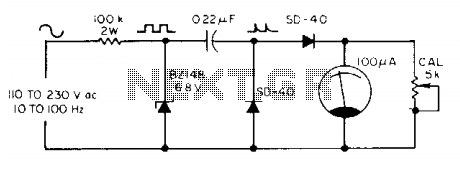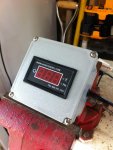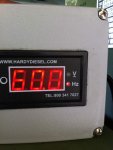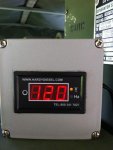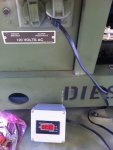The transducer converts frequency into current, 60 Hz should be 100 microamperes...
Great comment, Keith. Let me add:
First there are several versions of the meter/transducer pairs. Not all are 60 Hz to 100 µA, some are different.

So don't go mixing meters and transducers--they are a matched pair.
Second the actual meter adjusting screw is for zero set only, and should not normally be used to get a given or specified reading. If the meter is zero'ed with no current, and doesn't read the specified value with the rated current, the meter is defective.
Third, some of the transducers are adjustable. Some (early ones, typically are not.) The adjustable ones can be 're-calibrated' if their accuracy is questionable. Personally I recalibrate to 60 Hz and don't bother even checking the 50 Hz specification since no one here in the US needs a 50 Hz generator set! Keith's using of line voltage to calibrate is what I do as well--it works quite nicely. I also have used, but don't recommend, an audio signal generator, feeding an amplifier to check various frequencies, but I did that just to see how things worked!
Also, just for the record: that frequency meter is nothing more than a standard electronic tachometer. The transducer is a simple chip (today) and could be easily be replicated if one wanted.


